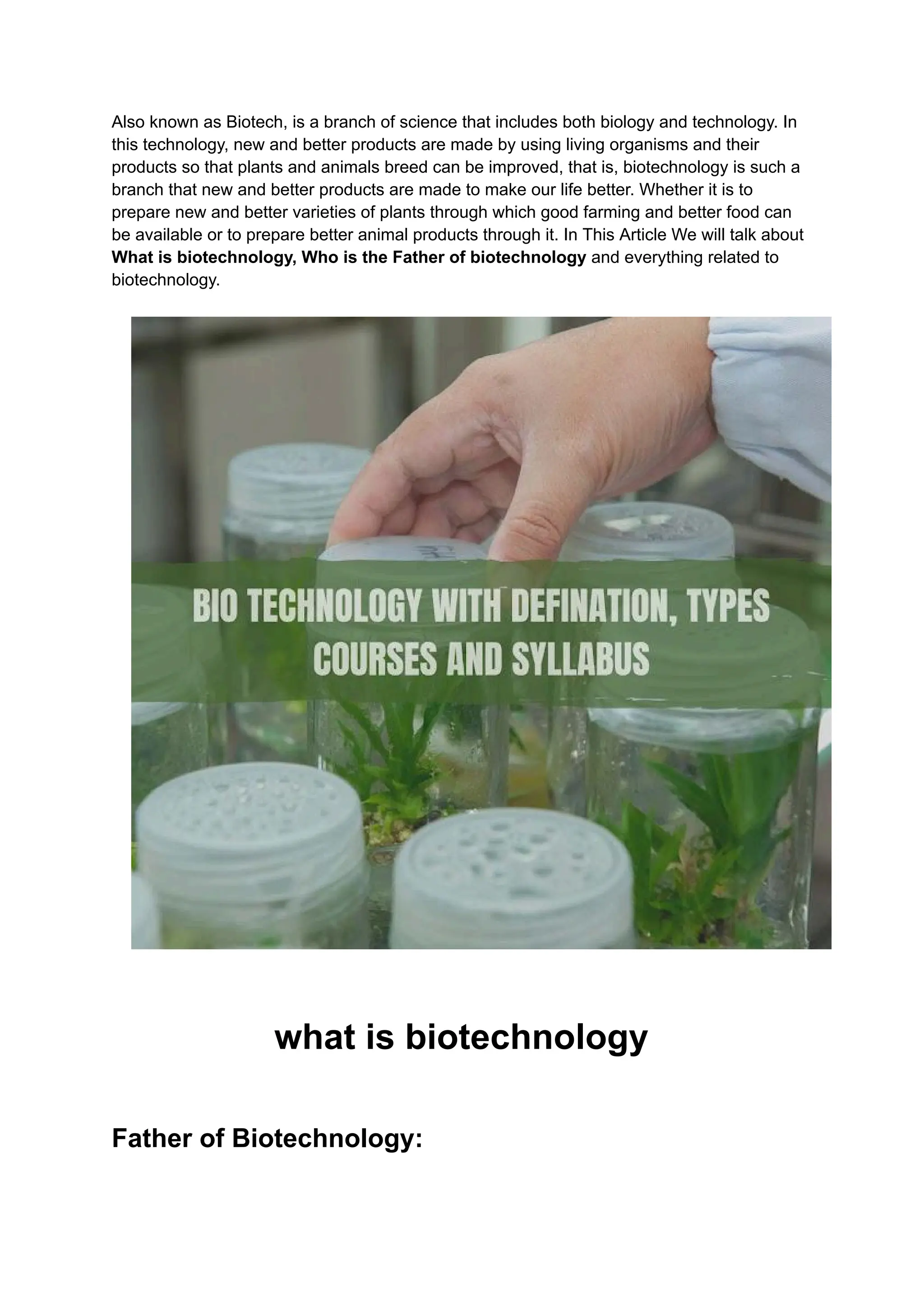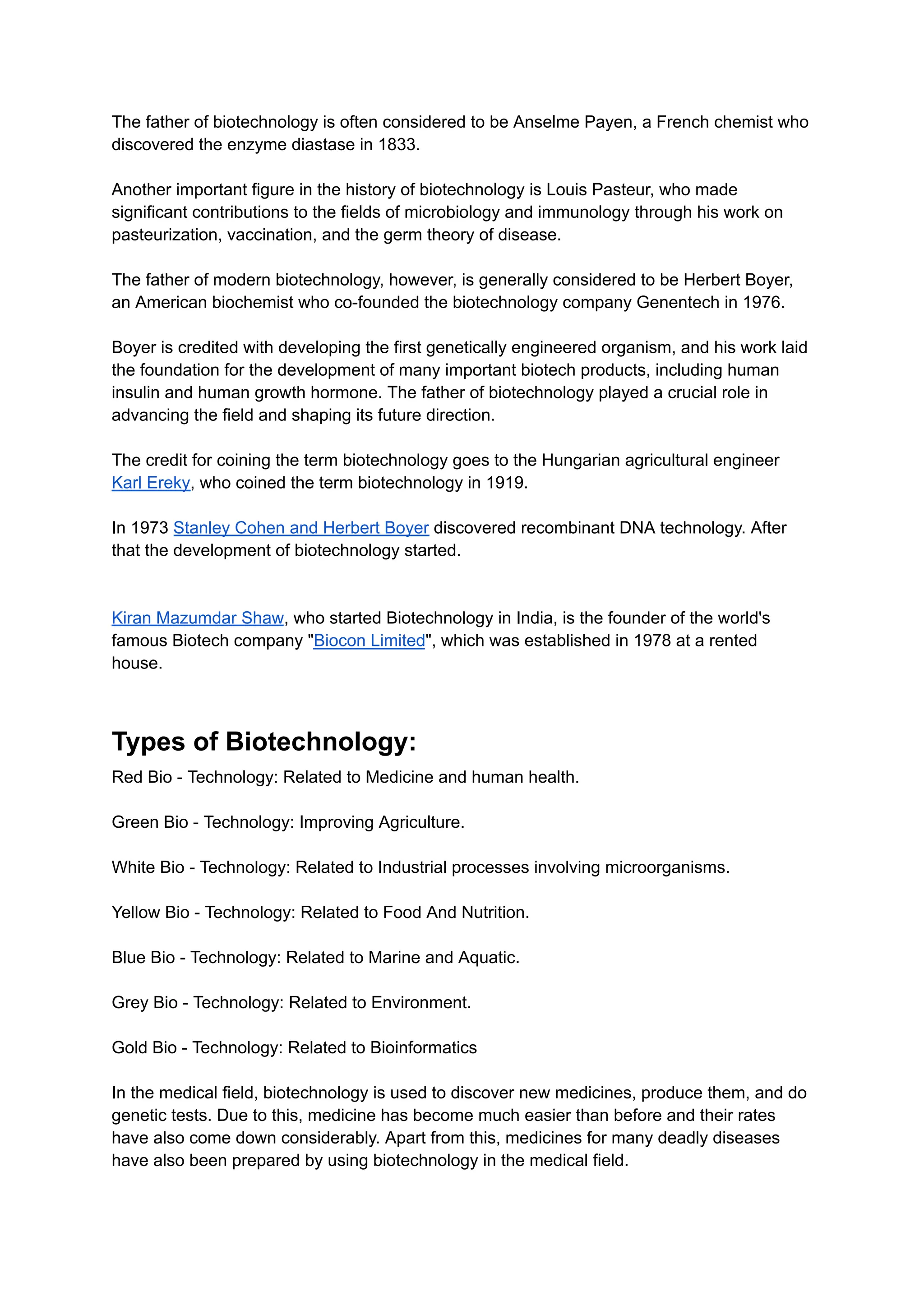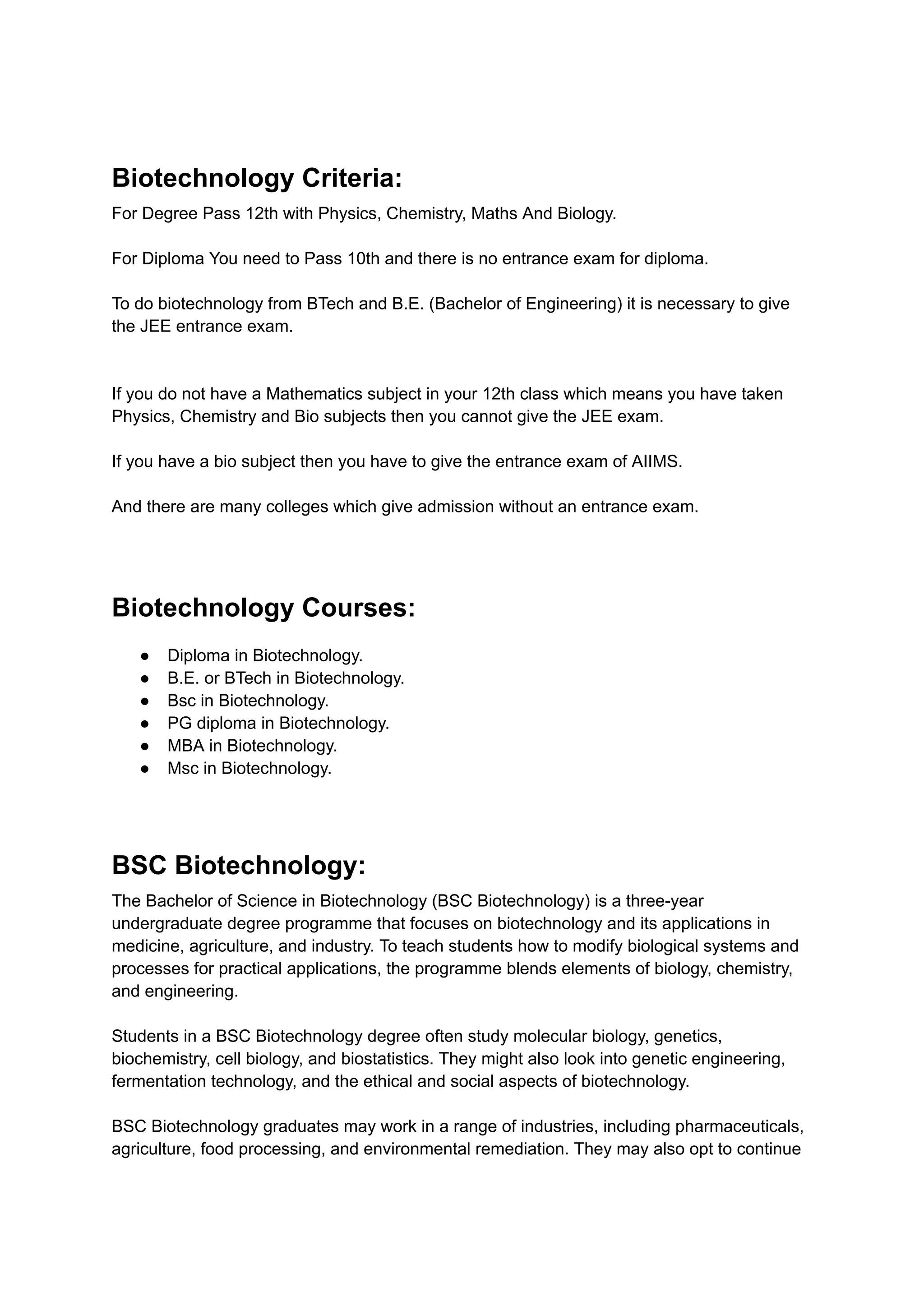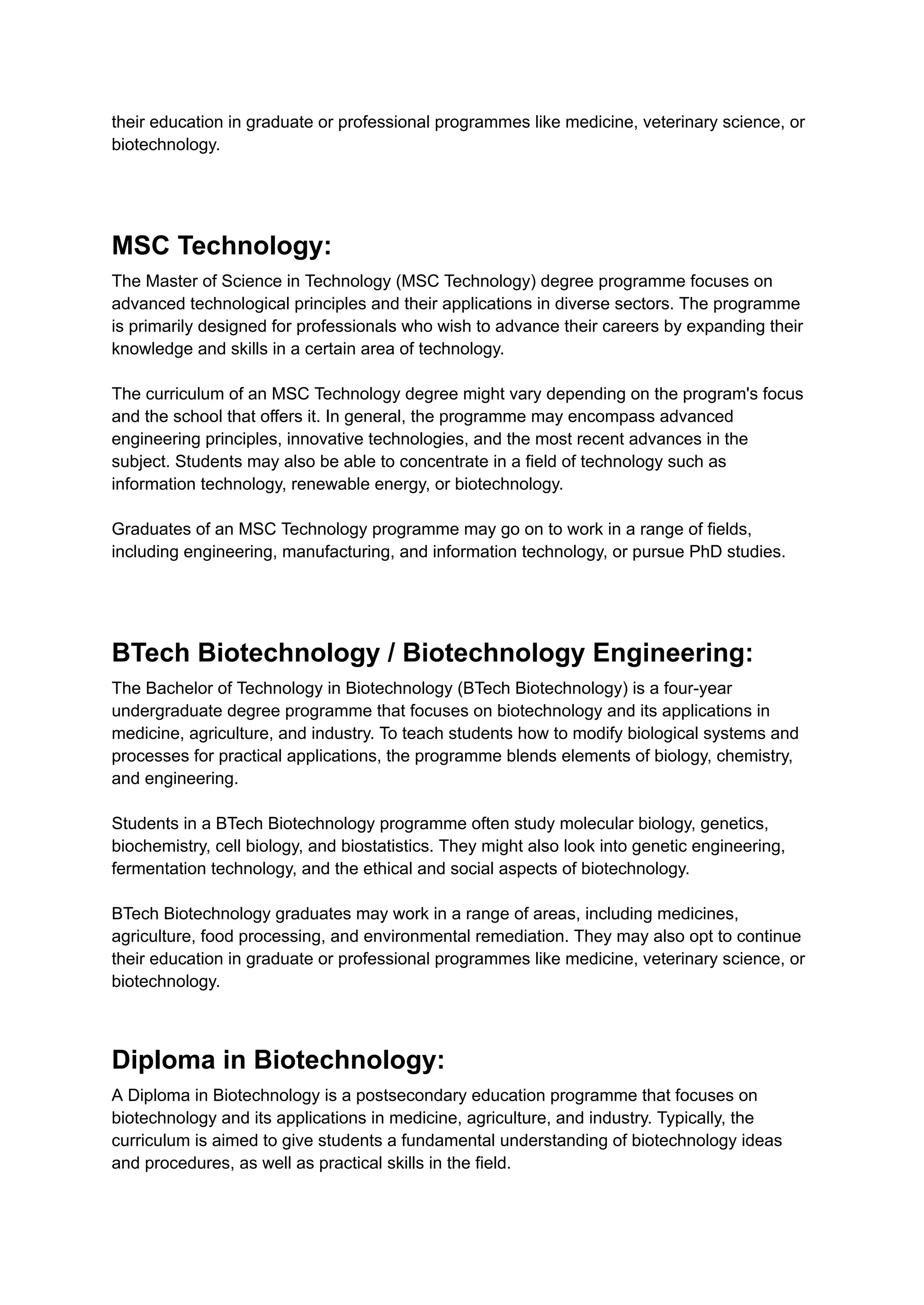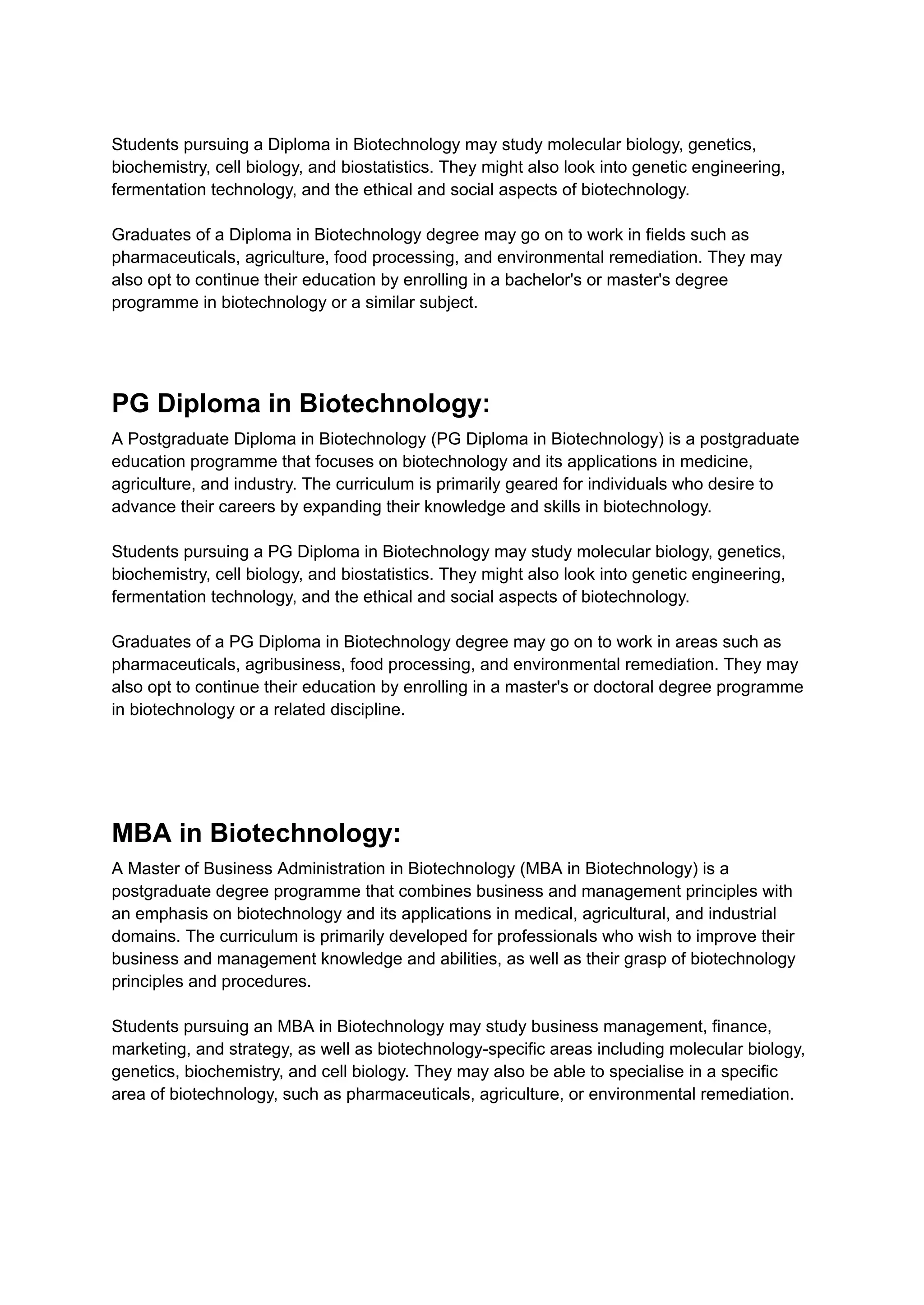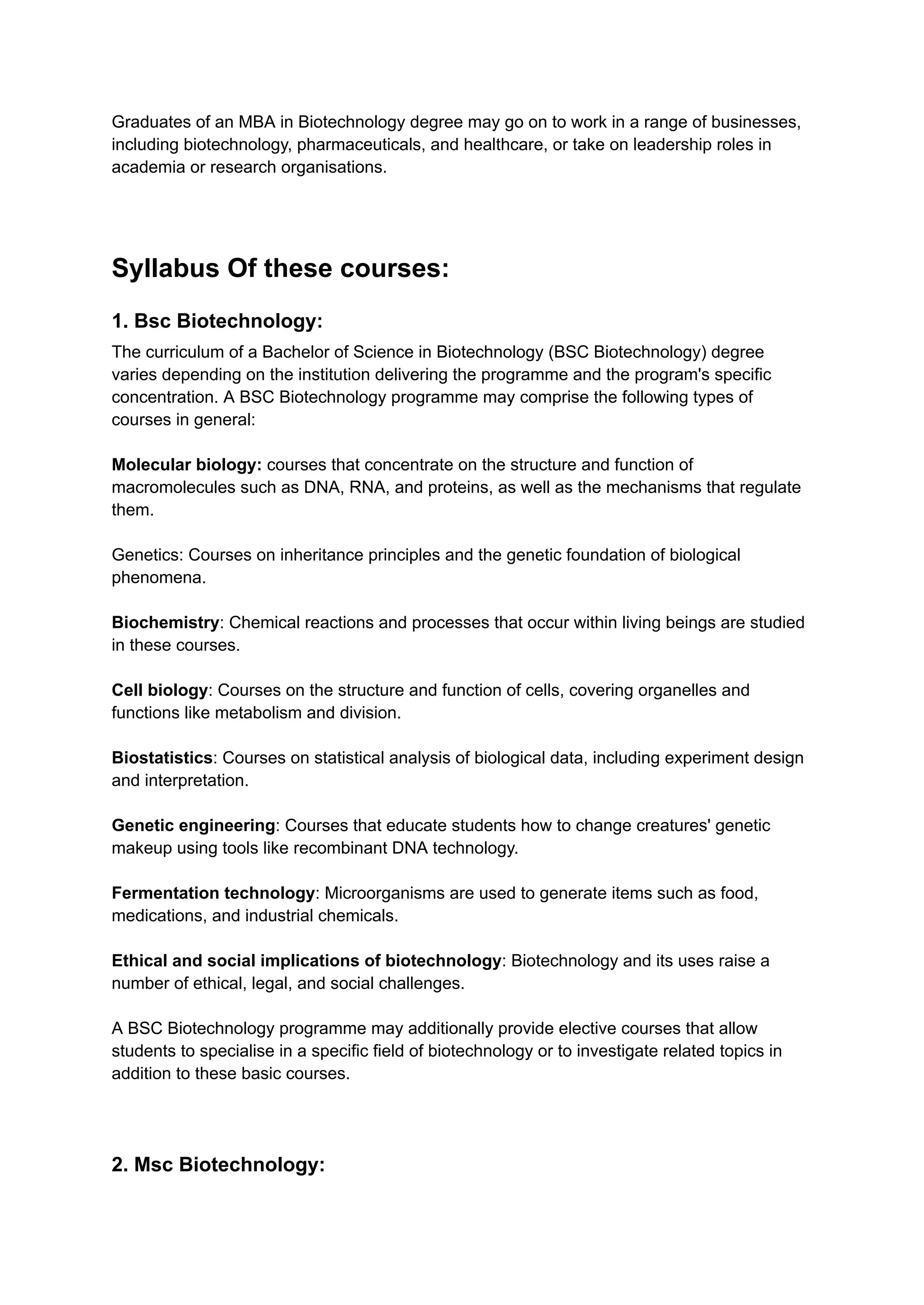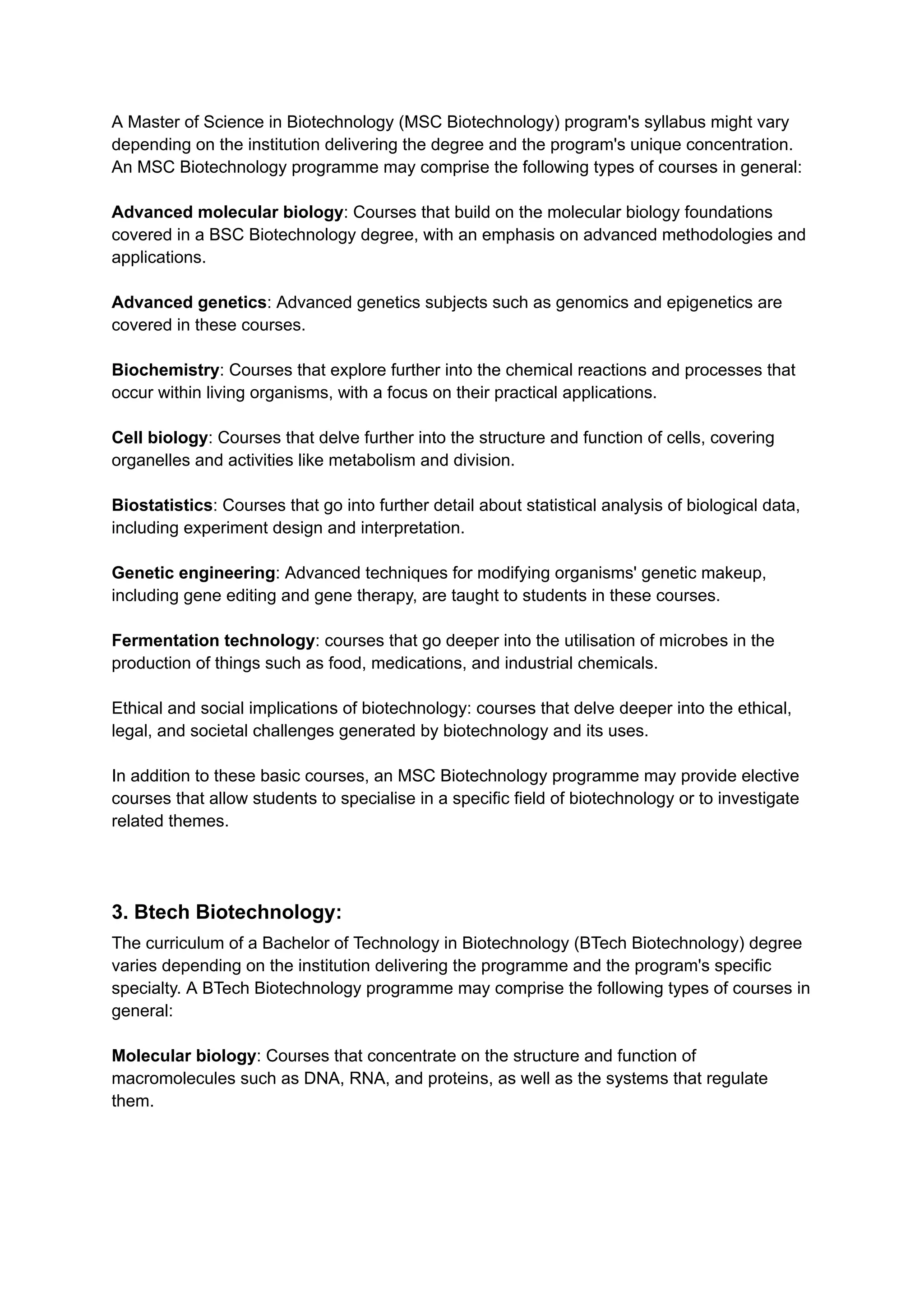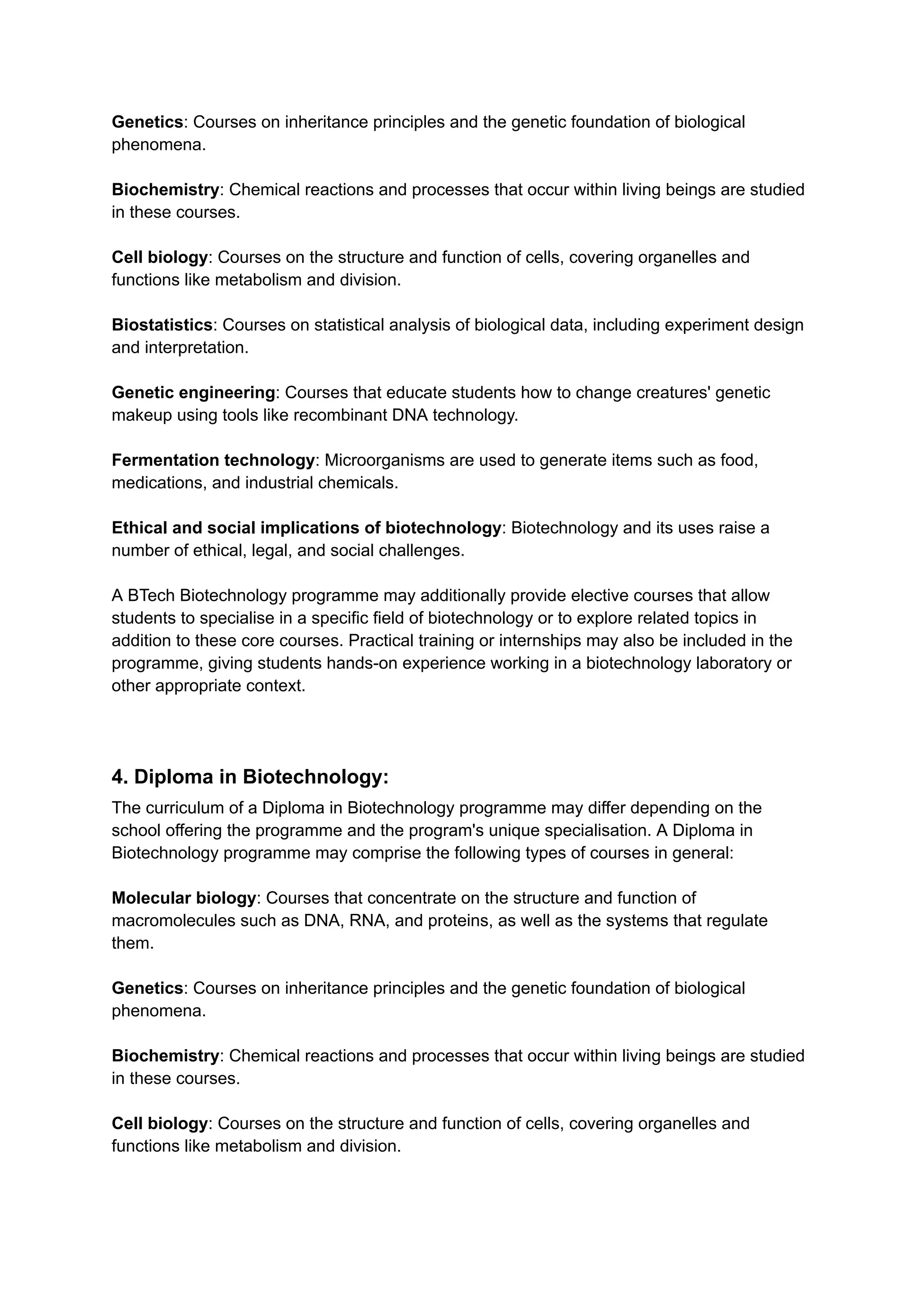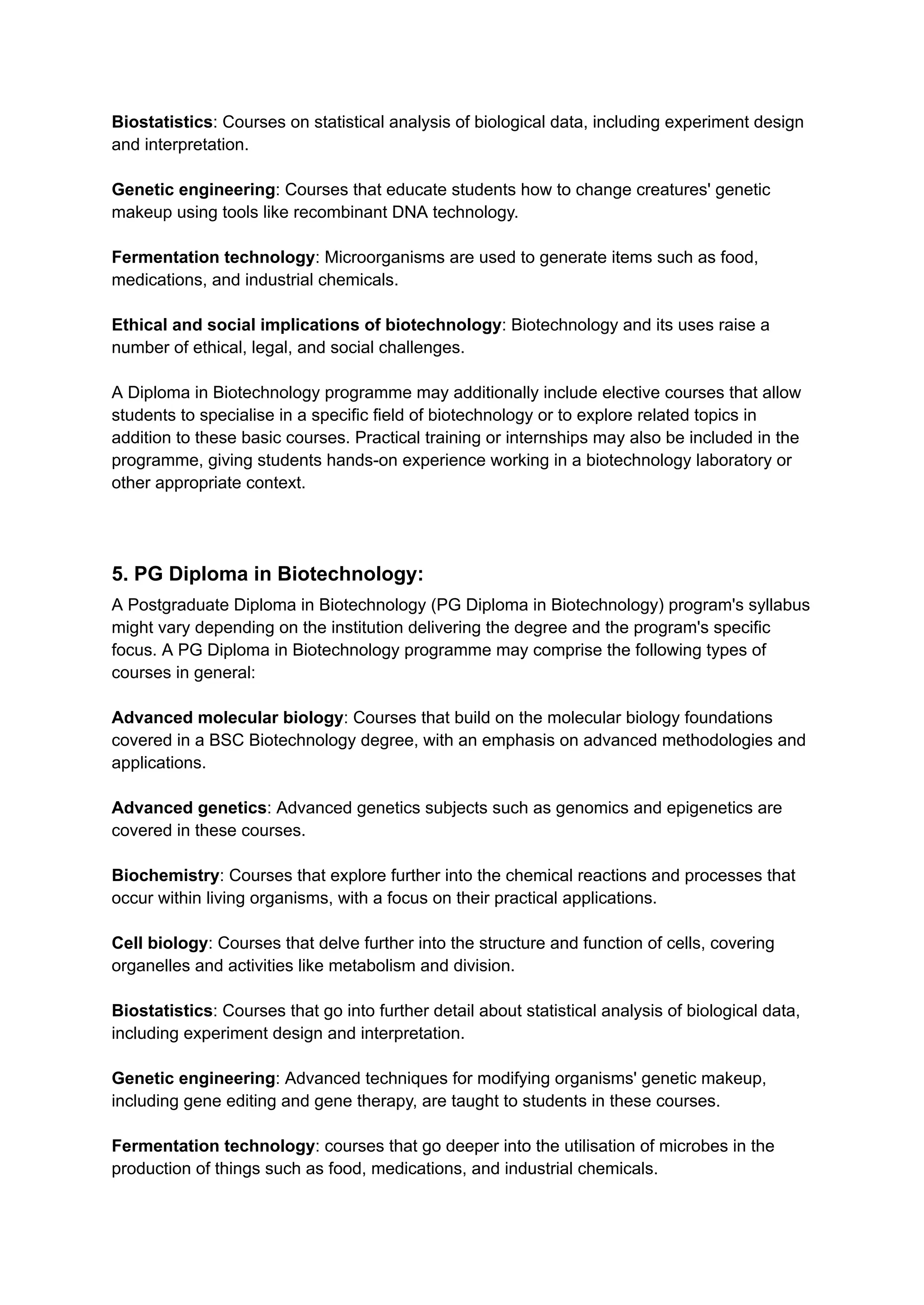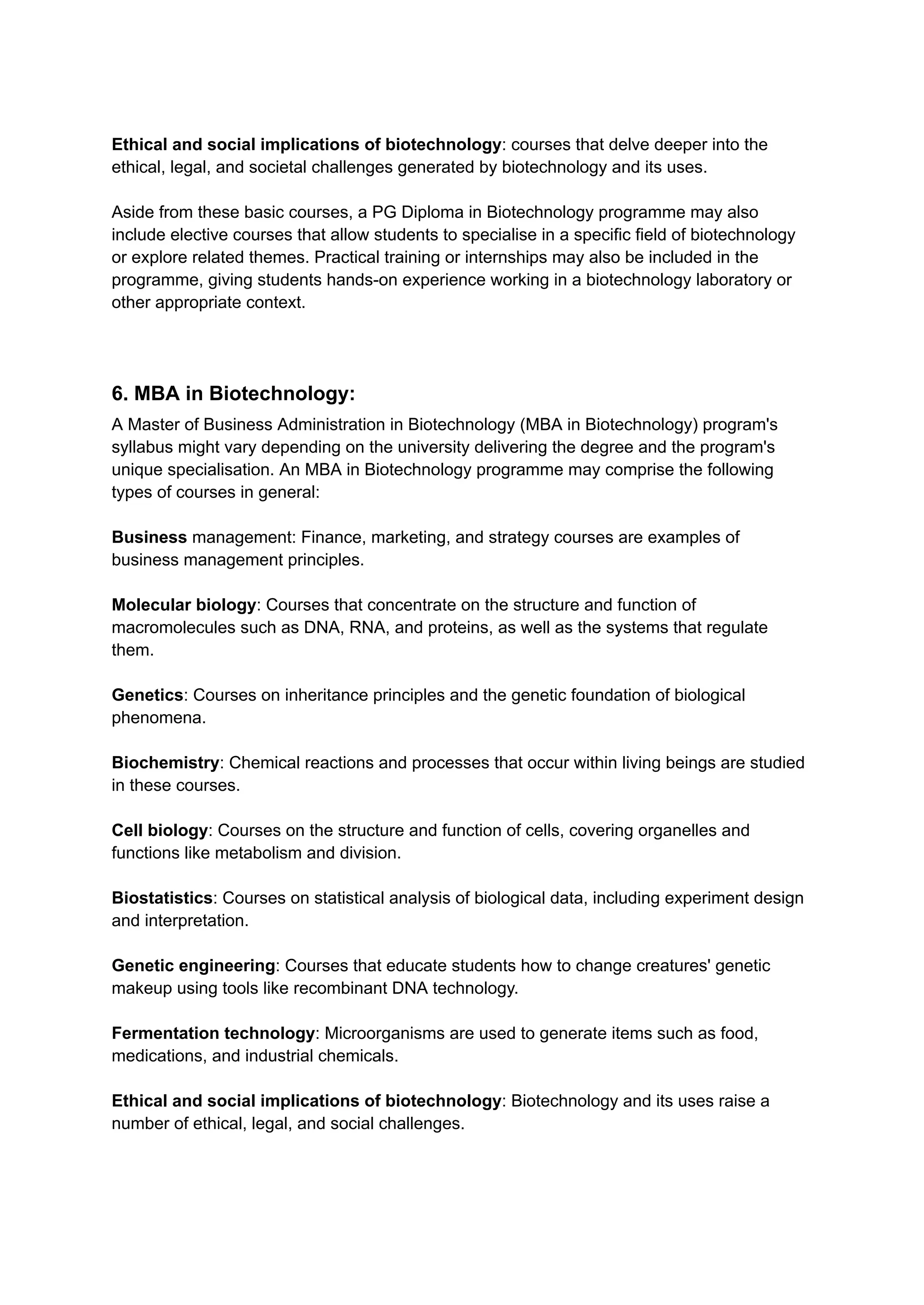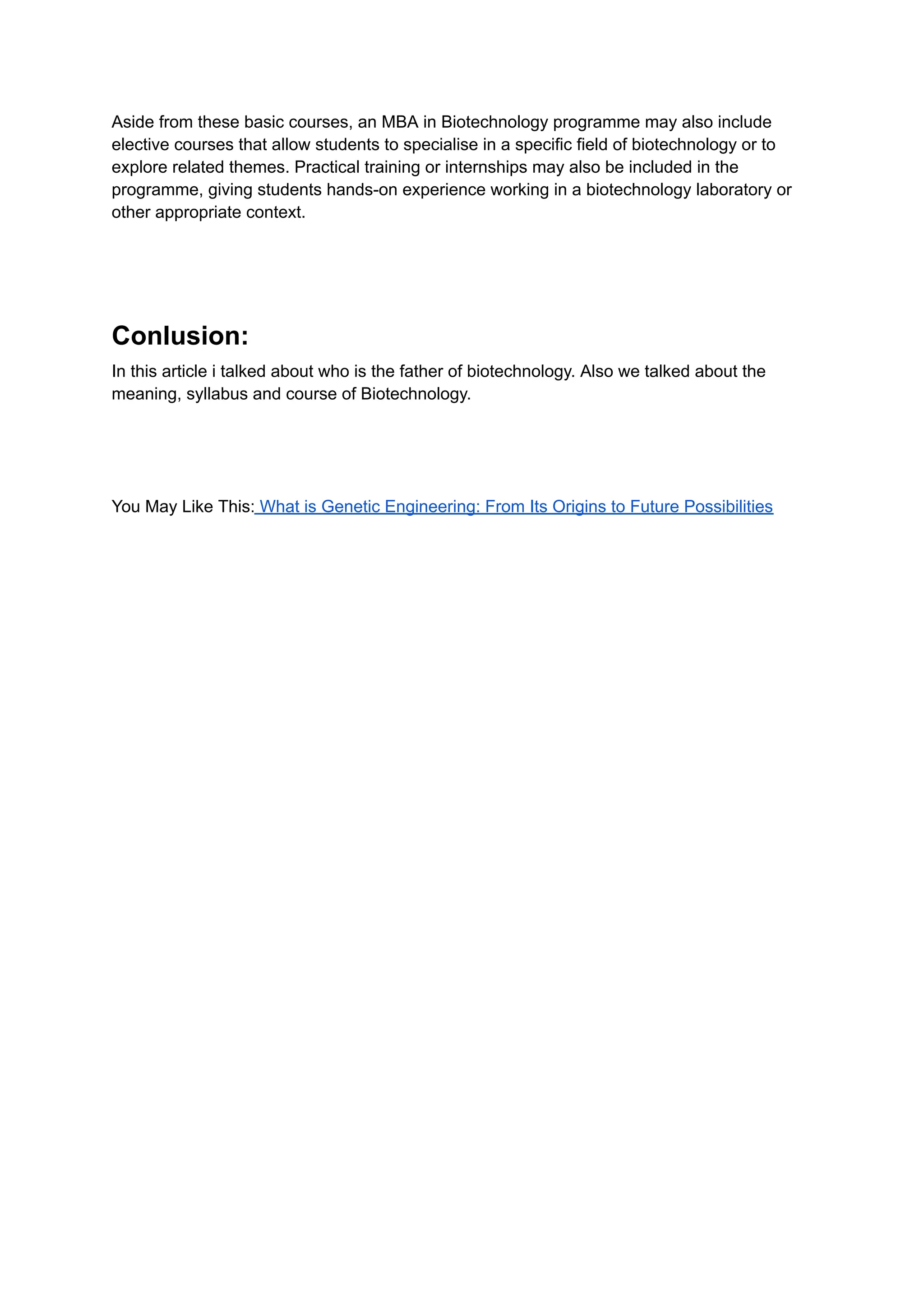Biotechnology, a branch of science combining biology and technology, aims to develop better products using living organisms, improving health and agriculture. Key figures include Anselme Payen (father of biotechnology), Louis Pasteur, and Herbert Boyer (father of modern biotechnology), who pioneered significant advances in the field. The document also discusses various biotechnology courses, their curricula, and applications in medicine, agriculture, and industry.
